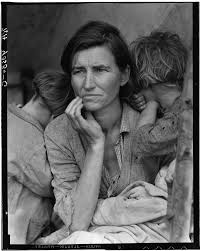记忆方法
将“destitute”分解为“de-”(表示“去掉”或“缺乏”)和“stitu”(联想到“stand”或“位置”),想象一个人因为某种原因(被“去掉”了某物或某位置)而变得一无所有,形容极度贫困或缺乏状态。
以上内容由AI生成, 仅供参考和借鉴
中文词源
destitute 贫困的
de-, 不,非,使没有。-stit, 站,词源同stand, institute.即使无立足之地,引申义贫困。
英语词源
- destitute
-
destitute: see statue
- destitute (adj.)
- late 14c., "abandoned, forsaken," from Latin destitutus "abandoned," past participle of destituere "forsake," from de- "away" + statuere "put, place," causative of stare "to stand," from PIE root *sta- "to stand" (see stet). Originally literal; sense of "lacking resources, impoverished" is 1530s.
权威例句
- 1. When he died, his family was left completely destitute.
- 他死时家里一贫如洗。
- 2. When Mr. Smith died, his wife and childern were left destitute.
- 史密斯先生死后, 他的妻儿变得一贫如洗.
- 3. When Mr. Smith died, his wife and children were left destitute.
- 史密斯先生死时, 他的妻子和孩子都陷入贫困.
- 4. They were destitute of necessaries of life.
- 他们缺少生活必需品.
- 5. Many had lost all in the disaster and were destitute.
- 很多人被灾难夺去了一切,变得一无所有。
